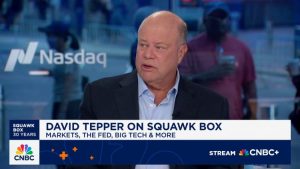When it comes to building retirement wealth, a Self Invested Personal Pension (SIPP) is one of the most powerful investing tools around. Beyond protecting capital gains and dividends from the clutches of HMRC, the added tax relief benefits can supercharge an investor’s pool of capital.
Assuming someone’s paying the Basic tax rate of 20%, any deposit made into a SIPP is eligible for 20% tax relief. And while investors can currently only put in a maximum of £60,000 a year, the unused allowance from the previous three years can be carried forward – something that’s not allowed with an ISA.
So those fortunate to have saved up £100,000 over the years can potentially deposit all this money into a SIPP in one go as well as receive £25,000 in tax relief!
However, the real challenge is figuring out where to put money to work. After all, the stock market can be incredibly volatile. And investing in poor quality companies can easily destroy wealth rather than create it.
Please note that tax treatment depends on the individual circumstances of each client and may be subject to change in future. The content in this article is provided for information purposes only. It is not intended to be, neither does it constitute, any form of tax advice. Readers are responsible for carrying out their own due diligence and for obtaining professional advice before making any investment decisions.
Investing £125,000 in 2024
When working with large sums of capital, there are quite a few factors to consider. One of the most significant is the estimated time to retirement. For those only a decade away, the list of suitable investments is likely much shorter than those with 20 years still ahead of them.
As a general rule of thumb, the less time an investor has, the more conservative the investments should be. That way, there’s less risk of insufficient funds once the time comes to withdraw.
In the world of the stock market, defensive income shares are usually a popular go-to solution. These businesses are typically less affected by economic cycles and market volatility, and they provide a steady stream of dividends. Fortunately for UK investors, the London Stock Exchange is filled with such enterprises, offering plenty of diversity to build a balanced portfolio.
For those comfortable with taking on more risk, international growth stocks can supply some lucrative capital gains. This typically comes paired with higher volatility and currency exchange risks. However, it also opens the door to investments such as US tech stocks, which have been explosive performers over the last decade.
Which strategy is best?
Both dividend– and growth-focused strategies can deliver impressive results. For example, Diploma (LSE:DPLM) shareholders have reaped over 600% gains over the last decade, thanks to an ever-increasing dividend. Meanwhile, across the pond, Amazon generated close to a 1,000% return over the same period.
In terms of total return, Amazon’s clearly in the lead. But it’s come at the cost of significant volatility over the years. The growth stock has endured more than 10 double-digit declines along its journey, with its most recent collapse in 2022 when more than half its value was wiped out as inflation surged.
Diploma has also had to endure its fair share of volatility as well. But as a supply chain distributor that doesn’t receive as much attention as Amazon, the share price hasn’t historically fluctuated as much. In fact, the 2022 stock market correction only took off around 30% of its value before quickly recovering. That’s still significant but nowhere near as severe.
The right investing strategy ultimately depends on individual preferences and circumstances. Regardless, investing in high-quality companies and holding them in a SIPP for the long run can help investors potentially boost their retirement wealth.
This post was originally published on Motley Fool





